The Latest from Boing Boing | 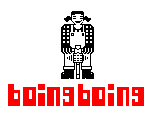 |
- Dear Google: You keep using that word...
- $75 tablet touted
- Greg Fleischut plays Andy Statman on guitar
- "We named the dog Indiana"
- Pragmatism not idealism: Molleindustria's Every Day The Same Dream
- Mom calls 911 over son's video game habit
- Forty-year-old air sample found
- Man jailed for eating near-extinct tiger in China
- Merry Christmas from Japan's favorite teen beatboxer
- Top 10 Cryptozoology Stories of 2009
- Photos of a day-glo, underwater world
- Tattoo in Japan
- Vintage pocket watches shaped as a bike and a book
- My weekend with a cardboard version of my boyfriend
- Duke Nukem Forevermore
- Berkeley scientists take to the air to pinpoint where greenhouse gases come from
- See you in 2010!
- BBC's plan to kick free/open source out of UK TV devices
- JC Hutchins's sf novel 7TH SON serial, Parts 9 and 10 - CONCLUSION!
| Dear Google: You keep using that word... Posted: 22 Dec 2009 08:15 PM PST Google's Jonathan Rosenberg wrote a paean to 'open,' in which his company's commitment to 'open' is pitched at great length. The most remarkable paragraph, however, is the one dealing with things that Google keeps closed: While we are committed to opening the code for our developer tools, not all Google products are open source. Our goal is to keep the Internet open, which promotes choice and competition and keeps users and developers from getting locked in. In many cases, most notably our search and ads products, opening up the code would not contribute to these goals and would actually hurt users.How odd that of all the products Google would be forced to keep proprietary by its commitment to an open internet, it just happens to be the ones that make it all of its money. |
| Posted: 22 Dec 2009 07:26 PM PST |
| Greg Fleischut plays Andy Statman on guitar Posted: 22 Dec 2009 02:09 PM PST I've posted before about my friend Greg Fleischut, a hypertalented young musician whose crossgenre passion spans bluegrass, freak folk, jazz, and alt.rock. Greg, now 18, is in college studying guitar. Here he is playing a tune by Klezmer clarinetist and mandolinist Andy Statman. Greg translated Statman's tune for the guitar. I find his seemingly-effortless shredding to be quite inspirational. Greg's indie rock band, The Audiophiles, are celebrating the release of their new EP, "Fairytales and Other Tales," with a gig on January 2 at San Francisco's Bottom Of The Hill. Previously: |
| Posted: 22 Dec 2009 01:33 PM PST Reading an End-of-the-Decade baby name round-up, I ran across this:
No Harvard for you, kid. But we named you after a dog. So there's that. NBC: Emma, Aiden are top baby names of the decade |
| Pragmatism not idealism: Molleindustria's Every Day The Same Dream Posted: 22 Dec 2009 12:53 PM PST  Like a mostly monochromatic mix of Jason Rohrer's momento mori game Passage and Nintendo's Zelda entry Majora's Mask, Every Day The Same Dream -- the latest game from Faith Fighter and McDonald's Videogame creator Molleindustria -- plays at issues of lives led in quiet, soul-sapping desperation by forcing you to subvert your own easy routines. Created in less than a week as an "Art Game" entry for the ongoing Experimental Gameplay Project (the same that's spawned Canabalt, MinMe and, in its original form, the prototype for World of Goo), Same Dream is as stylish as it is somber, even if it is punctuated by brief bursts of hopefulness and player-led humor. I won't spoil the ending (except to say that it's not half as powerful as the final lead-up to it) -- and yes, it does have an ending -- but it comes fully loaded with a gut-punch for anyone who has been or is currently a wage-slave office drone, and is already a pretty clear frontrunner for the indie release of the week. Play it online here, or download a PC and Mac version by scrolling to the bottom. Like a mostly monochromatic mix of Jason Rohrer's momento mori game Passage and Nintendo's Zelda entry Majora's Mask, Every Day The Same Dream -- the latest game from Faith Fighter and McDonald's Videogame creator Molleindustria -- plays at issues of lives led in quiet, soul-sapping desperation by forcing you to subvert your own easy routines. Created in less than a week as an "Art Game" entry for the ongoing Experimental Gameplay Project (the same that's spawned Canabalt, MinMe and, in its original form, the prototype for World of Goo), Same Dream is as stylish as it is somber, even if it is punctuated by brief bursts of hopefulness and player-led humor. I won't spoil the ending (except to say that it's not half as powerful as the final lead-up to it) -- and yes, it does have an ending -- but it comes fully loaded with a gut-punch for anyone who has been or is currently a wage-slave office drone, and is already a pretty clear frontrunner for the indie release of the week. Play it online here, or download a PC and Mac version by scrolling to the bottom. Previously: |
| Mom calls 911 over son's video game habit Posted: 22 Dec 2009 11:25 AM PST A desperate Boston mom called 911 late Saturday night because she couldn't get her 14-year old son to stop playing video games. A police spokesman said the call "was a little unusual, but by no means is it surprising." |
| Forty-year-old air sample found Posted: 22 Dec 2009 10:39 AM PST A man in Beaumaris, Australia provided scientists with the oldest sample of air from the southern hemisphere. John Allport, 76, gave a scuba tank that he had filled in 1968 to researchers from the CSIRO Marine and Atmospheric Research labs. From Nature: "Old air discovered" |
| Man jailed for eating near-extinct tiger in China Posted: 22 Dec 2009 10:33 AM PST A villager in Yunnan, China was sentenced to 12 years in jail and fined $70k for killing and eating what may have been the last wild Indochinese tiger in China. He claims it was in self-defense; four other villagers who also ate the tiger's meat were sentenced to 3-4 years, too, for "covering up and concealing criminal gains." |
| Merry Christmas from Japan's favorite teen beatboxer Posted: 22 Dec 2009 10:28 AM PST [via Kotoripiyopiyo (Japanese) via TokyoMango] |
| Top 10 Cryptozoology Stories of 2009 Posted: 22 Dec 2009 10:28 AM PST  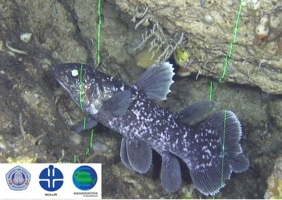 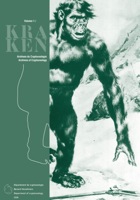 Over at Cryptomundo, Loren Coleman presents his picks for "The Top 10 Cryptozoology Stories of 2009." Several bits previously featured on BB made the cut, including the eating of a near-extinct bird, baby coelacanths, and alligators in the sewers. Others were new to me: an African Pygmy Hippo killed in Australia, the rediscovery of a species of crow and turtle thought to be extinct, and the quest for black panthers in Europe. |
| Photos of a day-glo, underwater world Posted: 22 Dec 2009 10:14 AM PST  The Dyche Natural History Museum at the University of Kansas has this almost hidden little room in the basement where you can go in, close a curtain, flip on a blacklight and watch as a collection of seemingly ordinary rocks light up with a fluorescent glow. This series of images, taken by photographer Louise Murray, reminds me of how much I like that room at the Dyche. Only, instead of rocks, Murray snaps photos of coral, fish and other sea creatures, using a portable blue light.
The Telegraph: Slideshow—The hidden fluorescent colours of the oceans |
| Posted: 20 Dec 2009 01:09 PM PST  Tattoo in Japan is divided into four chapters dedicated to different geographic regions: Tokyo, Chubu, Kyoto, and Osaka. Each area is known for a distinct style of ink art. They are presented here in rich color images accompanied by essays on the history of tattoo art in this country, and its contemporary expression. The book profiles traditional tebori artists (and the rituals of respect that surround them), along with street shop inkers (for whom Western musical influences like punk and rockabilly reign). After the jump, an exclusive Boing Boing image gallery of favorite photos from the book.
In Japan, the choice to adorn your body with ink is not without stigma: for instance, you're not allowed to enter a public bath (onsen) in Japan if you have tattoos. Boing Boing's resident Japan expert Lisa Katayama blogged earlier about a book on a yakuza boss' daughter and her tattoos over at Tokyomango. For the woman whose life was the subject of that book, tattoos were a way to reconcile her difficult childhood experiences with a self-determined identity. That same melding of history, culture, and individual spirit also manifests throughout Tattoo in Japan.
The volume contains some 250 photographs, on more than 300 pages, and weighs nearly seven pounds. It ends with notes on how and where one might go about getting a really nice tat in Japan, and by the time you reach the end, you'll be tempted. My coveted review copy will be occupying prime real estate on the living room table, right next to a related title also published by Edition Reuss -- Black Tattoo Art: Modern Expressions of the Tribal. Tattoo in Japan: Amazon Link | Publisher website (Thanks, Marisa, images courtesy Edition Reuss)

|
| Vintage pocket watches shaped as a bike and a book Posted: 22 Dec 2009 09:57 AM PST  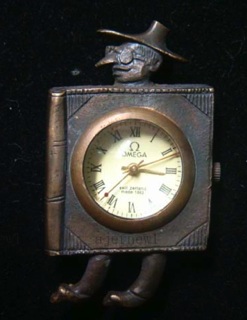 eBay oddity scout Michael-Anne Rauback spotted these curious "Victorian" brass mechanical pocket watches in the form of a bicycle and "Mr. Book." |
| My weekend with a cardboard version of my boyfriend Posted: 22 Dec 2009 09:07 AM PST  Cardboard Brian* and I met at a ski shop in Colorado. He was hanging out by the front door, smiling indiscriminately at passersby. I instantly fell for his charming, goofy, lopsided grin. The shop employee said he wasn't for sale, but he let me take him home anyway. I was drawn to Cardboard Brian because he slightly resembles my real life boyfriend — they have the exact same hairstyle and cartoon-like facial features. But shortly after I brought him back to my hotel room, I began to feel like Cardboard Brian was taking on a life of his own. While Real Brian sat at his computer chatting away on AIM with his buddies, Cardboard Brian sat next to me on the couch and we watched The Wedding Planner together, both of us with smiles on our faces. I was genuinely enjoying his company. This past Saturday, my real boyfriend was in Pacifica all day with a surf buddy, so I decided to take Cardboard Brian out with me instead. I placed him upright on my passenger seat and off we went. My first stop was the neighborhood yarn store — I needed to get some materials for a hat I'm making for my friend's newborn. I walked into the shop, holding Cardboard Brian gingerly by the head, and spent a good half hour looking at all the beautiful textures and colors of yarn. Baby blue merino or apaca-wool blend? Knit or crochet? I found myself asking Cardboard Brian simple questions that came to mind. Maybe I'm making it up, but I feel like he advised me to crochet in baby blue merino, so I went with that. We made a quick stop at the bank. As I stood in the teller line, a couple of guys stared at Cardboard Brian, whom I had tucked neatly underneath my armpit. Cardboard Brian just stared right back and stuck his tongue out at them. I often drive around town with my dog Ruby in the passenger seat. Since she's always staring at me, I talk to her about the weather, my itinerary for the day, the next story I'm working on.... just day-to-day chatter that passes through my busy head. Talking to Cardboard Brian was similar to that; he's much less reactive than Ruby is, but at the end of the day, both entail talking to an activity partner that can't really talk back. Is it as engaging as talking to a real human? Not exactly. But in a way, it's more satisfying because I can let all my social barriers go — I don't have to worry about whether I'm being boring or rude. It's refreshing. It was a beautiful afternoon, so Cardboard Brian and I decided to take the dogs to the beach. Let me rephrase: I decided we should take the dogs to the beach. Cardboard Brian just smiled agreeably. We walked idly down the shoreline, hand on head, listening to the waves break and smiling at the dogs as they galloped from one washed up chunk of seaweed to the next. We stayed like this until Real Brian showed up and asked me what I was doing carrying Cardboard Brian around at the beach. "You weren't around, so I brought him instead," I told him. We took a few pictures together — me and Cardboard Brian, Real Brian and Cardboard Brian — and left as the sun began to set. Of course, there's a downside to having a cardboard boyfriend. Cardboard Brian doesn't like to eat — I'm a food-lover at heart, so I find it hard to relate to his apathy for the culinary arts. He doesn't have a job and probably never will, which is a big turnoff. Since we can't procreate, it's hard to imagine starting a family and spending the rest of my life with him. (Well, maybe I can spend the rest of my life with him, but I have a feeling he'd end up in the closet.) He also takes up a surprising amount of room on the bed, even though he's only 18 inches in diameter. And he's not cuddly. Also, I'd never say this to his face, but he's a bit bland. Even though he kept pretty good company for a piece of paper, I have to admit I was a little bored. After spending an entire day with a cardboard surrogate boyfriend, I decided to retire him to the office wall as decoration. As relaxing as it was to hang out with Cardboard Brian for a day, I think I'll stick with the Real, Complicated Brian and the joys and challenges he brings... at least for now. *Cardboard Brian is actually the mascot of a snowboarding brand called Neff. Previously: |
| Posted: 22 Dec 2009 08:46 AM PST Wired's Clive Thompson on why Duke Nukem Forever absorbed 12 years of development time before its inevitable cancelation: because creator George Broussard forever obsessed over incorporating the latest graphical technology, generating an endless treadmill of upgrades. |
| Berkeley scientists take to the air to pinpoint where greenhouse gases come from Posted: 22 Dec 2009 08:28 AM PST This video helps explain how researchers keep track of whether or not California is meeting standards set by AB-32—the 2006 law that mandates a 25% reduction in greenhouse gas emissions by 2020. Scientists monitor emissions round-the-clock via towers in San Francisco and Walnut Grove, California.
But to get a closer view, researchers recently took their measurement instruments on a flight over Sacramento and the Bay area. |
| Posted: 22 Dec 2009 06:58 AM PST  I'm about to leave the office for the last time this year and head off on holidays. I've got one more blog-post queued up -- a review of a kids' book that'll go live tomorrow morning -- and that's all you'll hear from me until Jan 11. I'm not going to be taking in email while I'm away. If you send me a message, you'll get an autoresponder telling you to try again after Jan 11, something that I picked up from danah boyd. It's the best answer I've found to resolving the problem of coming back from a nice, relaxing vacation to find 20,000 emails waiting for you. So this is me, signing off. Thanks for an outstanding 2009, filled with many weird turns, delights shared, pains commiserated over, victories and defeats. I'm off to spend a couple wonderful weeks with my family, and to leave Boing Boing in the hands of my kick-ass co-editors. I'll see you next year. I'm sure it'll be a doozy. (Image: Lonely Hammock, a Creative Commons Attribution ShareAlike image from *Micky's photostream) |
| BBC's plan to kick free/open source out of UK TV devices Posted: 22 Dec 2009 06:28 AM PST My latest Guardian column, "The BBC's digital rights plans will wreak havoc on open source software," describes how the BBC's plan to add DRM to its high-def broadcasts will exclude free/open source software from use in digital television applications, slowing down innovation, raising costs, and harming the public interest. The BBC's regulator, Ofcom, will soon hold a second consultation on the Beeb's plan to add DRM to high-def broadcasts, and I'm urging them to get the BBC to answer for this consequence of the DRM plan. The BBC's digital rights plans will wreak havoc on open source software (Image: JERKS!, a Creative Commons Attribution photo from ebmorse's photostream) Previously:
|
| JC Hutchins's sf novel 7TH SON serial, Parts 9 and 10 - CONCLUSION! Posted: 22 Dec 2009 06:15 AM PST 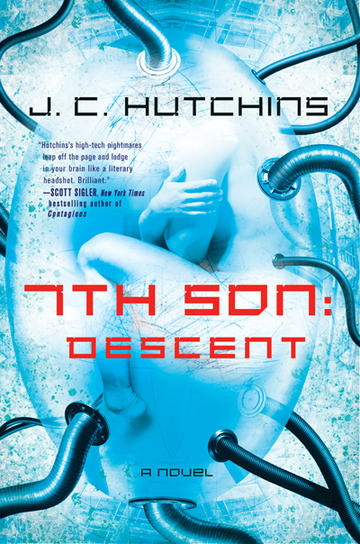 Welcome to the ninth and tenth serialized installments of J.C. Hutchins' human cloning thriller <7th Son: Descent. If this is your first exposure to our free serialization of 7th Son, you can easily catch up by experiencing the story via links found at J.C.'s About 7th Son page. You can also dive in right away, thanks to... Welcome to the ninth and tenth serialized installments of J.C. Hutchins' human cloning thriller <7th Son: Descent. If this is your first exposure to our free serialization of 7th Son, you can easily catch up by experiencing the story via links found at J.C.'s About 7th Son page. You can also dive in right away, thanks to... THE STORY SO FAR: In California, Michael, Dr. Mike and John and the 7th Son soldiers invaded the night club -- and found themselves in a trap, staring at John Alpha himself. Kilroy2.0, Jack and Jay slipped into the CDC's secure intranet, searching for NEPTH-charge victims. In Russia, the Devlins began their first -- and final -- mission together. Father Thomas finally met Hugh Sheridan ... and the true nature of Project 7th Son was unveiled. Check out this week's installment below. If you're enjoying this serialized experience, support the book by purchasing a copy at Amazon, Barnes & Noble or Borders, or printing this PDF order form and presenting it at your favorite bookstore. You can learn more about the book at J.C.'s site. Previously:
|
| You are subscribed to email updates from Boing Boing To stop receiving these emails, you may unsubscribe now. | Email delivery powered by Google |
| Google Inc., 20 West Kinzie, Chicago IL USA 60610 | |

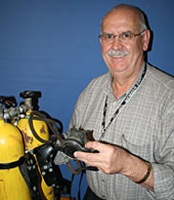 The air archive maintained by CSIRO started in 1978, and contains samples of clean air from a station at Cape Grim, Tasmania. It's the oldest such archive in the world. Now with Allport's tank, last used in 1970, the record has been extended further.
The air archive maintained by CSIRO started in 1978, and contains samples of clean air from a station at Cape Grim, Tasmania. It's the oldest such archive in the world. Now with Allport's tank, last used in 1970, the record has been extended further. Fans of Japanese culture and of tattoo art will find much to enjoy in this large format photobook exploring the diversity of Japan's tattoo scene.
Fans of Japanese culture and of tattoo art will find much to enjoy in this large format photobook exploring the diversity of Japan's tattoo scene. 


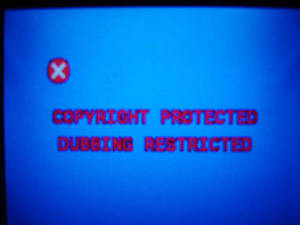 The entire DTLA system relies on the keys necessary to authenticate devices and unscramble video being kept secret, and on the rules governing the use of keys being inviolable. To that end, the DTLA "Compliance and Robustness Agreement" (presented as "Annex C" to the DTLA agreement) has a number of requirements aimed at ensuring that every DTLA-approved device is armoured against user modification. Keys must be hidden. Steps must be taken to ensure that the code running on the device isn't modified. Failure to take adequate protection against user modification will result in DTLA approval being withheld or revoked.
The entire DTLA system relies on the keys necessary to authenticate devices and unscramble video being kept secret, and on the rules governing the use of keys being inviolable. To that end, the DTLA "Compliance and Robustness Agreement" (presented as "Annex C" to the DTLA agreement) has a number of requirements aimed at ensuring that every DTLA-approved device is armoured against user modification. Keys must be hidden. Steps must be taken to ensure that the code running on the device isn't modified. Failure to take adequate protection against user modification will result in DTLA approval being withheld or revoked.
No comments:
Post a Comment